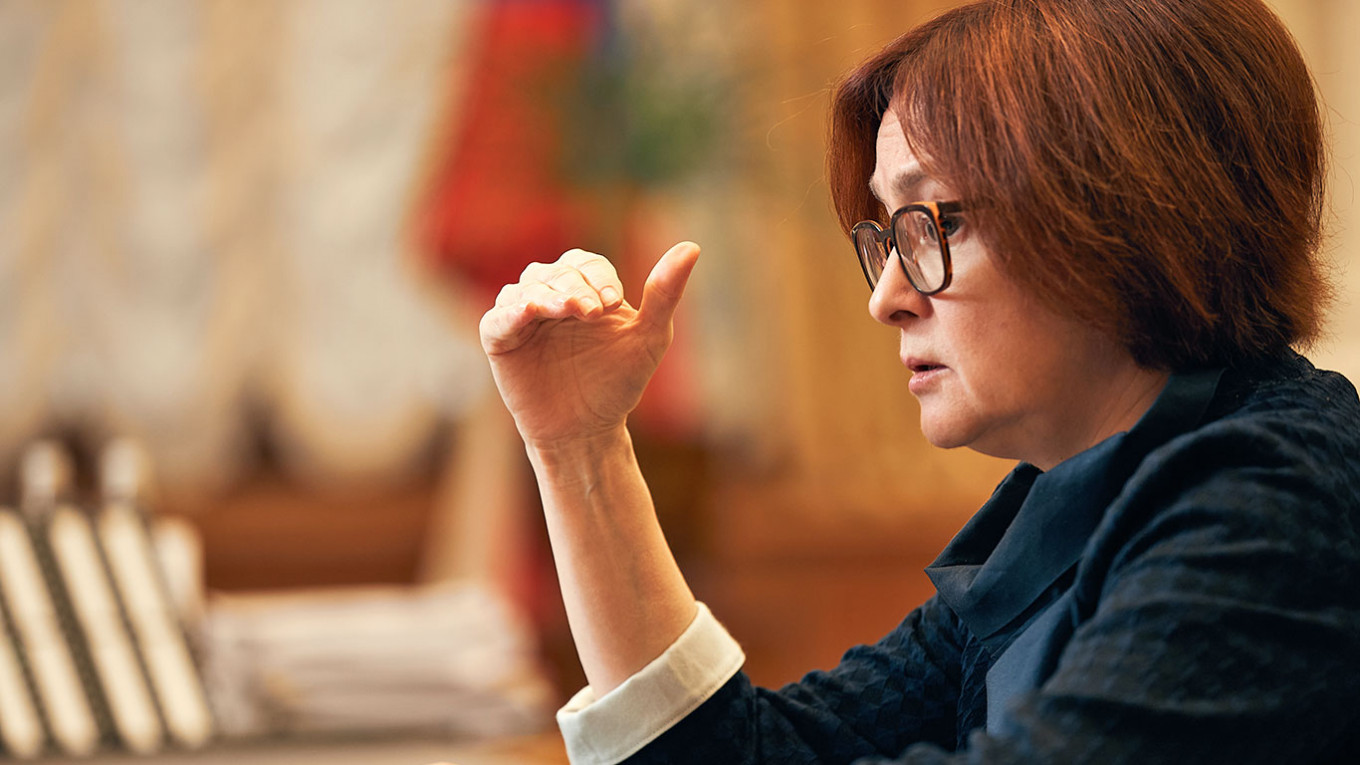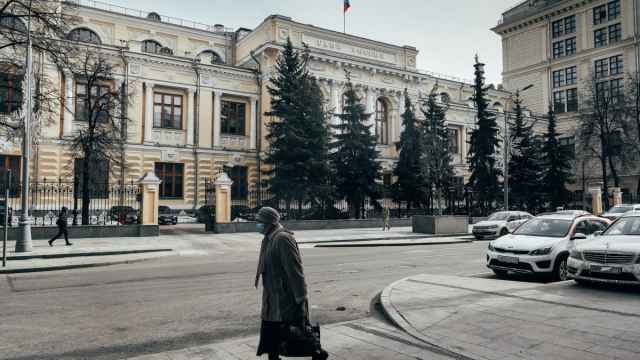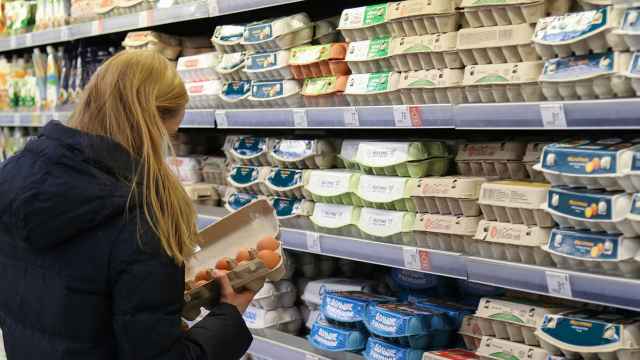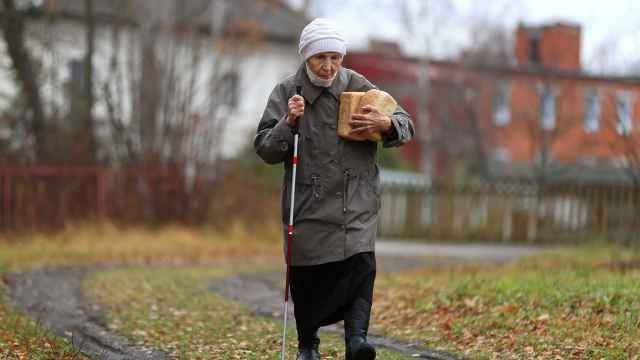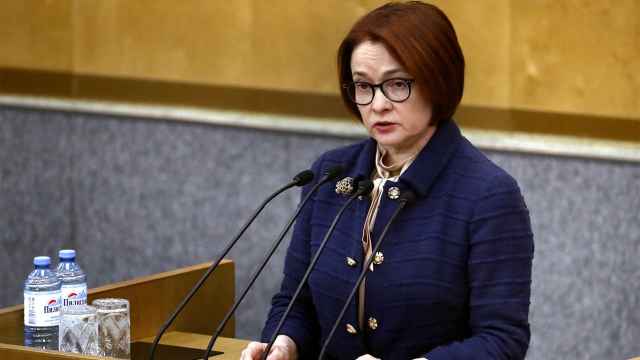Russia’s Central Bank hiked interest rates to 7.5% on Friday as economists warned the country faces a triple threat of rising coronavirus cases, new lockdown measures and surging inflation.
The Russian economy recovered to its pre-coronavirus size earlier this year — a quicker recovery than first expected and faster than most other large economies — but now faces serious headwinds from both home and abroad.
The Central Bank said inflation was “developing substantially above forecast, and is expected to be within the range of 7.4-7.9% at the end of 2021” — a huge increase from the previous forecast of under 6% that was set in July.
Governor Elvira Nabiullina has taken an aggressive approach to taming inflation, and has warned for months that rising prices threaten to derail the Russian recovery.
Those fears prompted her to increase the Central Bank’s key interest rate by 0.75 percentage points to 7.5% — a more aggressive hike than financial markets were expecting. The Russian ruble advanced on the news, gaining 1.4% against the U.S. dollar in trading to stand at 70.1, its strongest level since before the outbreak of the coronavirus pandemic last year.
Nabiullina said further rate rises were in the cards, as the Bank battles to bring inflation back down to its 4% target. Prices are currently rising at almost double that level — 7.8% — it said in a statement Friday, adding that inflationary factors were “dominating” the economic horizon.
“The Central Bank continues to act decisively and ahead of the curve — which is fully justified in the current conditions in the global and Russian economy,” said Dmitry Polevoy, investment director at Loko Invest.
“An additional 50 basis point increase in December may now be considered the baseline scenario.”
Partial lockdowns
The Bank did not downgrade its growth forecasts, but other economists have said the Russian economy will be hit by the latest surge of the coronavirus. Moscow is about to enter a 10-day partial lockdown, which will see all non-essential businesses closed and workers sent on extended paid vacations. Several other regions have rolled out vaccine passports for entry into indoor venues and vaccine mandates for works in certain sections of the economy.
Russia reported a record 37,141 new Covid-19 infections Friday and said 1,064 patients had died from the virus over the last 24 hours.
Economists at Sova Capital said the latest restrictions look set to take up to 0.3 percentage points off Russia’s growth this year, with more damage should the Kremlin opt to extend the so-called “non-working” period, as it has hinted.
The Central Bank is forecasting GDP will expand by 4-4.5% over 2021. It noted however that signs of an economic slowdown were already prevalent across many sectors of the economy — with the global supply chain crunch playing a role.
“A number of sectors are under increased pressure from supply-side constraints. Their restraining effect on business activity may grow stronger against the background of tightened anti-pandemic measures.”
“A recovery in the services sector is held back by the challenging epidemic situation,” the Bank said.
Services make up more than three-quarters of Moscow’s economy, and the “upcoming hard lockdowns … are likely to have a significant impact,” said Sova Capital’s Chief Economist Artem Zaigrin.
But the string of new restrictions announced across the country in recent days did not cause the Bank to reconsider the rate hike, Nabiullina said Friday, adding that partial lockdowns could exacerbate Russia’s battle with inflation.
“Through the waves of the pandemic, we see that restrictions are having a diminishing effect on demand, and combined with supply restrictions and business closures, we consider that pandemic restrictions have more of an inflationary influence now,” she said during a press conference following the interest rate hike Friday.
“Basically, the Central Bank doesn’t feel it should be responding to the pandemic,” said ING economist Dmitry Dolgin. “Ideally, the negative effects of lockdowns on businesses and households can be addressed through the [government’s] budget policy tools, not monetary ones,” he added, summarizing the Bank’s approach.
Friday’s decision was Russia’s sixth consecutive increase in interest rates this year, moving the cost of borrowing emphatically away from the historic low of 4.25% set last year to help support the economy.
A Message from The Moscow Times:
Dear readers,
We are facing unprecedented challenges. Russia's Prosecutor General's Office has designated The Moscow Times as an "undesirable" organization, criminalizing our work and putting our staff at risk of prosecution. This follows our earlier unjust labeling as a "foreign agent."
These actions are direct attempts to silence independent journalism in Russia. The authorities claim our work "discredits the decisions of the Russian leadership." We see things differently: we strive to provide accurate, unbiased reporting on Russia.
We, the journalists of The Moscow Times, refuse to be silenced. But to continue our work, we need your help.
Your support, no matter how small, makes a world of difference. If you can, please support us monthly starting from just $2. It's quick to set up, and every contribution makes a significant impact.
By supporting The Moscow Times, you're defending open, independent journalism in the face of repression. Thank you for standing with us.
Remind me later.



